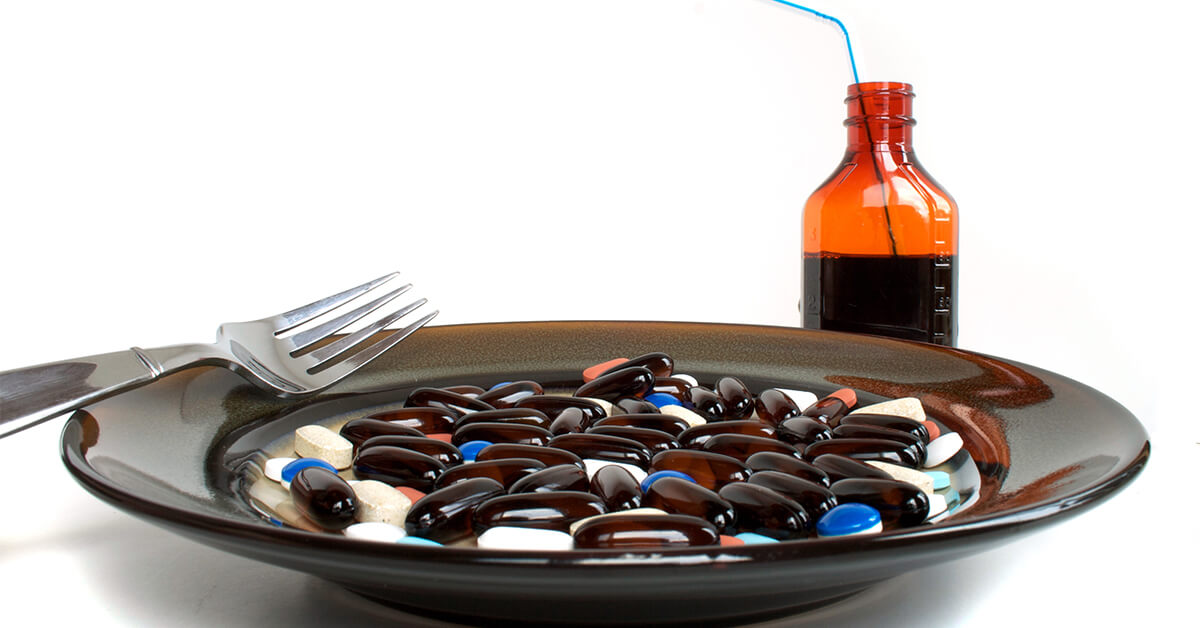December 21, 2022

Are You Going to Finish That (Prescription Drug)?
If you come to dinner at a casual or fast-food restaurant with my family, chances are, you’re going to hear someone say, “Are you going to finish that?” That someone usually is me.
It’s usually me for two reasons. One, I like food and will eat pretty much anything within arm’s reach if you’re not careful. Two, I hate waste. I mean, I absolutely hate waste of any kind. Leaving two fries on your plate is like leaving a half page-worth of ink in a cartridge or tossing out a box of fuzzy raspberries because we didn’t eat them within 15 seconds of bringing them home.
It’s not because I’m cheap or can’t afford it or grew up during the Great Depression. It’s because waste is just wrong. You’re needlessly disposing something of value or something that has value to someone else. Think of all the water we waste as we wait for the water coming out of the shower head to get hot. Then think of all the people who have to walk miles just to get a gallon of clean water to drink.
Given that, you can’t imagine all my handwringing at a new study in JAMA Internal Medicine on wasted prescription drugs.
Researchers from Beth Israel Deaconess Medical Center and Harvard Medical School in Boston wanted to know how much Medicare spends on prescription drugs thrown away by providers who give them to beneficiaries with Medicare Part B coverage. Generally, these are injectable drugs given by physicians or other licensed clinicians to patients. The amount thrown away is the difference between the right dose for the patient and what’s left in the prepackaged vial or tube or bag after the patient gets the drug.
It’s like the two ounces of Diet Coke left in your 12-ounce can after you fill your 10-ounce glass. Except you don’t get to empty the can into your glass after you take a few sips.
Also, unlike leftover Diet Coke, federal law requires physicians and other clinicians to report leftover drug percentages to CMS on their Medicare Part B drug claims.
Using data reported to CMS, here’s what the researchers found: over the four-year study period, 2017 through 2020, providers threw out 2.2 percent of about 500 different types of administered drugs at a cost to Medicare of $3 billion. Further:
- The percentage of discarded drugs rose to 2.3 percent in 2020 from 1.8 percent in 2017
- The cost of the discarded drugs dropped to $719.2 million in 2020 from $736.9 million in 2017
- Non-oncologic injectable and infusion drugs were the most frequently discarded drugs followed by chemotherapy drugs, “other” drugs and imaging drugs
In an accompanying editorial, two researchers who weren’t part of the study, one from Yale and the other from Vanderbilt, said the amount of prescription drug waste is likely underreported because physicians don’t have any strong incentives to report medication waste on their Medicare claims.
“The status quo is unsustainable, and it is incumbent on policy makers to act,” they said. “Decreasing waste, one way or another, can help us to avoid throwing away Medicare’s resources, saving money
and, more importantly, lives.”
The idea of expensive and potentially life-saving cancer drugs going to waste is particularly galling given the growing unaffordability of oncology care. Also galling is the fact that we’re paying drug companies to make something that’s not being used and providers to administer something that’s not being used.
Paying for and throwing away part of a good corned beef sandwich is one thing. Paying for and throwing away someone’s chance at life is another.
I hate waste.
Thanks for reading.





